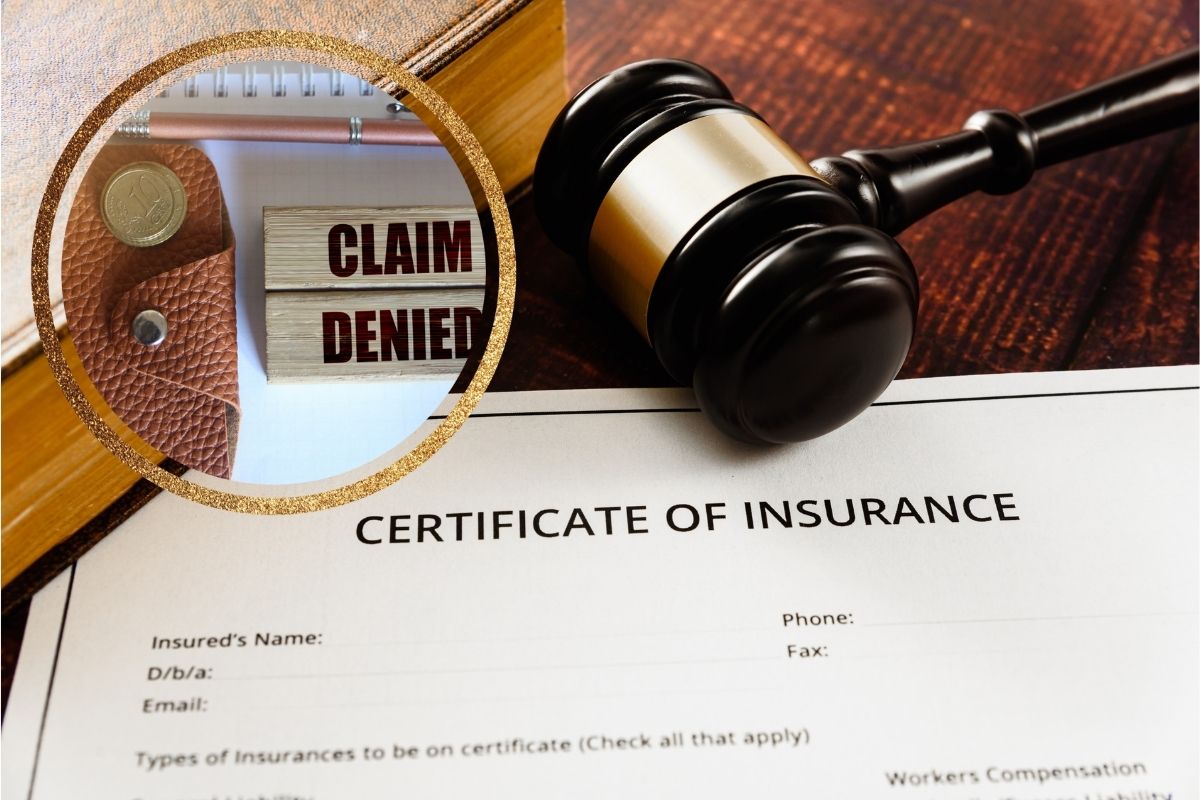
When you pay for an insurance policy—whether for your health, home, car, or life—you expect it to be there when disaster strikes. Unfortunately, many people across Missouri find themselves stuck when an insurance company refuses to pay a valid claim or delays it for no reason.
If that sounds familiar, you’re not alone. Insurance companies use delay-and-deny tactics more often than most people realize. But here’s the truth: you have rights and don’t have to deal with this alone. I’m here to walk you through the steps and explain how a personal injury lawyer can help protect your interests.
What Constitutes Bad Faith Insurance Practices?
“Bad faith” refers to dishonest or unfair practices by insurance companies when handling your claim. Insurers are legally required to act in “good faith”—evaluating claims honestly, quickly, and fairly. When they fail to do so, it opens the door to a potential legal claim.
Bad faith isn’t just frustrating—it violates your rights as a policyholder.
Common Examples of Bad Faith by Insurance Companies
It might not be a simple misunderstanding if your claim was denied or delayed. Here are real-world examples of bad faith practices:
- Denying valid claims without explanation or proper investigation
- Delaying payment without cause, hoping you’ll give up
- Failing to conduct a timely or thorough investigation
- Offering settlements that are far below the actual value of your losses
- Requesting unnecessary or excessive documentation to slow down your claim
These tactics are used to wear you down. But you don’t have to accept it. If you suspect foul play, it’s time to talk to Springfield Bad Faith Insurance Attorneys, who can evaluate your situation and explain your options.
What to Do After a Denied or Delayed Claim
1. Request a Detailed Denial Letter
Ask your insurer for a written explanation. This should include the exact policy language used to justify the denial.
2. Review Your Policy Carefully
Don’t rely on what the adjuster tells you. Go through your policy word by word. Look for exclusions, coverage limits, and ambiguous language.
3. Document Everything
Save every correspondence—emails, voicemails, denial letters, receipts, and photos. If you’ve been waiting for a claim decision, document the duration of the delay.
4. File a Complaint with the Department of Commerce & Insurance (DCI)
You can report suspected bad faith behavior by filing a consumer complaint with the DCI. They may investigate patterns of unfair treatment and hold insurers accountable.
Insurers may deny or delay your claim due to “insufficient documentation,” unclear liability, policy exclusions, or even intentionally to avoid payment. In many cases, these reasons may not be valid—especially when documentation has been provided and the claim is covered.
Signs Your Insurance Company May Be Acting in Bad Faith
I don’t know if you’re dealing with bad faith. Here are some top red flags:
- Unexplained or repeated delays in communication
- Vague or shifting reasons for denial
- Intimidating or aggressive adjuster behavior
- Requests for documents you’ve already submitted
- Pressure to accept a low offer quickly
Your insurance company may not act in good faith if any of these sound familiar. In these cases, reaching out to a Bad Faith Insurance Lawyer Near 65806 can help you get clarity and move forward.
Legal Rights of Policyholders Under Bad Faith Insurance Law
As a policyholder, you’re protected under both statutory and common law bad faith doctrines:
- Statutory bad faith covers actions that violate Missouri insurance codes.
- Common law bad faith refers to broader legal principles requiring insurers to treat you fairly.
You have the legal right to file a lawsuit if your insurance company fails to uphold its end of the policy. You may be entitled to more than just your claim’s value—damages can include compensation for emotional distress, financial losses, and even punitive damages in some instances.
If you suspect bad faith, preserve your legal rights by:
- Keeping all written communication
- Saving a copy of your original policy and any amendments
- Writing down dates and details of every call or interaction
- Contacting a knowledgeable lawyer early in the process
Yes. In Missouri, you can sue for bad faith if your insurer unreasonably denies a valid claim or delays payment. With strong evidence and legal support, you may recover the value of your original claim and emotional damages, legal fees, and potentially punitive damages.
How to Prove Bad Faith in an Insurance Dispute
Proving bad faith isn’t always straightforward. It requires you to show:
- The insurance policy was active at the time of the loss
- Your claim was valid and covered
- The insurer acted unreasonably or intentionally disregarded your rights
Documentation is key. Courts will look for:
- Emails, letters, and phone logs
- The insurer’s reason for denial
- Independent evaluations (like repair estimates or medical opinions)
- Evidence of your efforts to comply with the claims process
We help our clients build a strong case with proper documentation and expert insights.
State-by-State Variations in Bad Faith Law
Bad faith laws differ across the country. In Missouri:
- The statute of limitations for filing a bad-faith insurance claim is five years
- You must show more than a simple mistake—there must be intentional or reckless conduct
- You may recover compensatory and punitive damages, plus legal fees
Compared to some states, Missouri gives policyholders a strong foundation for fighting back. Still, the process is complex. Having someone who knows local laws and court expectations makes a real difference.
Typical Outcomes and Damages in Bad Faith Insurance Lawsuits
If you win a bad faith case in Missouri, you may be awarded:
- Full value of your original claim
- Emotional distress damages (stress, anxiety, or financial hardship)
- Punitive damages if the insurer acted maliciously
- Attorney’s fees and court costs
These aren’t just numbers—they represent justice for the delay, denial, and distress caused by unfair insurance tactics. It’s about making things right.
Tips for Protecting Yourself from Insurance Bad Faith
Don’t wait for problems to snowball. You can protect yourself by:
- Keeping detailed records of all conversations and documents
- Following up frequently in writing, not just by phone
- Responding quickly to insurer requests (and documenting your responses)
- Consulting an attorney early—before the claim gets too complicated
Many people wait too long to get help. Don’t let that be you.
Be proactive. Keep everything in writing, take notes during calls, and never assume your insurer will act reasonably. If something feels off, get a legal opinion sooner rather than later.
Take Back Control Today
When your insurance claim is unfairly denied or delayed, it feels like betrayal. You trusted them, paid premiums, and now you’re stuck. But you do have power—and you do have options.
If you’re dealing with any of these issues, talk to a Springfield Bad Faith Insurance lawyer at Rah Law today. I’ll review your case, explain your rights, and help you push back. You deserve the protection you paid for—don’t settle for anything less.
Call at now for a free consultation. Let’s make sure your insurer keeps its promise.





